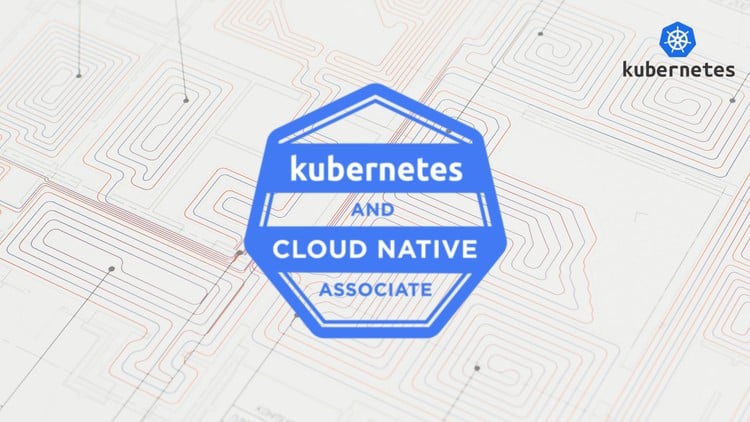
High-quality practice exams to boost confidence, identify weak areas, and prepare you for real test success
👥 685 students
🔄 September 2025 update
Add-On Information:
Note➛ Make sure your 𝐔𝐝𝐞𝐦𝐲 cart has only this course you're going to enroll it now, Remove all other courses from the 𝐔𝐝𝐞𝐦𝐲 cart before Enrolling!
- Course Overview
- This comprehensive practice exam series is meticulously designed to mirror the format, difficulty, and scope of the official Kubernetes and Cloud Native Associate (KCNA) certification exam.
- Gain access to a curated collection of high-fidelity practice tests, simulating the actual testing environment to familiarize yourself with question styles and time constraints.
- Each practice exam offers a robust assessment of your readiness, allowing for targeted study and confident preparation for achieving KCNA certification.
- Leverage these exams as a crucial stepping stone in your journey to becoming a certified cloud-native professional, validating your foundational understanding of Kubernetes and its ecosystem.
- The September 2025 update ensures that the practice materials are current with the latest trends and exam objectives in the rapidly evolving cloud-native landscape.
- Benefit from an extensive pool of questions that cover the breadth and depth of the KCNA curriculum, ensuring no critical domain is left unaddressed.
- This course is an indispensable tool for anyone aiming to solidify their knowledge and demonstrate proficiency in core cloud-native concepts as defined by the CNCF.
- Prepare to not just pass the exam, but to truly understand and apply cloud-native principles through rigorous, exam-level practice.
- Requirements / Prerequisites
- A foundational understanding of containerization concepts, such as Docker, is highly recommended.
- Basic familiarity with Linux command-line operations will enhance the learning experience.
- While prior hands-on Kubernetes experience is beneficial, it is not strictly mandatory for utilizing these practice exams effectively. The exams themselves will guide you on areas needing further exploration.
- Access to a stable internet connection to download and utilize the practice exam materials.
- A genuine desire to learn and master the principles of Kubernetes and cloud-native technologies.
- Enthusiasm for self-paced learning and a proactive approach to identifying and addressing knowledge gaps.
- Curiosity about how applications are built, deployed, and managed in modern, distributed environments.
- A willingness to invest time in reviewing explanations for both correct and incorrect answers to maximize learning.
- Skills Covered / Tools Used
- Kubernetes Fundamentals: Deep understanding of core Kubernetes components, objects (Pods, Deployments, Services, Namespaces), and their interrelationships.
- Cloud Native Principles: Grasp of microservices architecture, declarative configuration, immutability, and statelessness.
- Container Orchestration: Proficiency in managing containerized applications at scale using Kubernetes.
- Networking Concepts: Knowledge of Kubernetes networking models, Services, Ingress, and CNI plugins.
- Storage and Volumes: Understanding of persistent storage, PersistentVolumes, PersistentVolumeClaims, and StorageClasses.
- Observability: Familiarity with logging, monitoring, and tracing in a Kubernetes environment.
- Security Best Practices: Awareness of Kubernetes security contexts, RBAC, Network Policies, and secrets management.
- CI/CD Integration: Foundational knowledge of how CI/CD pipelines interact with Kubernetes for application deployment.
- CNCF Landscape Awareness: Exposure to key projects within the Cloud Native Computing Foundation ecosystem (e.g., Prometheus, Helm, Envoy).
- Troubleshooting Fundamentals: Ability to identify common issues and apply diagnostic techniques within a Kubernetes cluster.
- YAML and Declarative Configuration: Practical understanding of writing and interpreting Kubernetes manifests in YAML.
- Command-Line Interface (CLI) Usage: Familiarity with `kubectl` commands for interacting with Kubernetes clusters.
- Benefits / Outcomes
- Enhanced Exam Confidence: Significantly boost your self-assurance by practicing under simulated exam conditions.
- Precise Weak Area Identification: Pinpoint specific topics or concepts where further study is required, allowing for focused revision.
- Improved Time Management: Develop effective strategies for answering questions within the allotted exam time.
- Increased Knowledge Retention: The iterative process of practice, review, and correction aids in solidifying your understanding of complex topics.
- Demonstrated Competency: Achieve KCNA certification, a valuable credential that validates your foundational cloud-native skills to employers.
- Career Advancement Opportunities: Open doors to new roles and responsibilities in the rapidly growing field of cloud-native development and operations.
- Practical Application Insights: Gain a deeper appreciation for how theoretical Kubernetes concepts translate into real-world application deployments.
- Foundation for Advanced Learning: Build a solid base of knowledge that prepares you for more advanced Kubernetes certifications and roles.
- Reduced Exam Anxiety: Familiarity with the exam format and question types will significantly alleviate stress on the actual test day.
- Cost-Effective Preparation: An affordable and efficient way to assess your readiness without the immediate pressure of a live exam.
- PROS
- Realistic Exam Simulation: Questions are crafted to closely match the difficulty and style of the official KCNA exam.
- Up-to-Date Content: Regularly updated to reflect the latest KCNA syllabus and industry best practices.
- Targeted Improvement: Detailed feedback helps you focus your study on areas needing the most attention.
- Boosts Confidence: Repeated success in practice exams significantly increases readiness and reduces test anxiety.
- Scalable Learning: Accessible anytime, anywhere, allowing for flexible study schedules.
- CONS
- Requires Self-Discipline: Success relies heavily on the learner’s commitment to regular practice and review.
Learning Tracks: English,IT & Software,IT Certifications
Found It Free? Share It Fast!